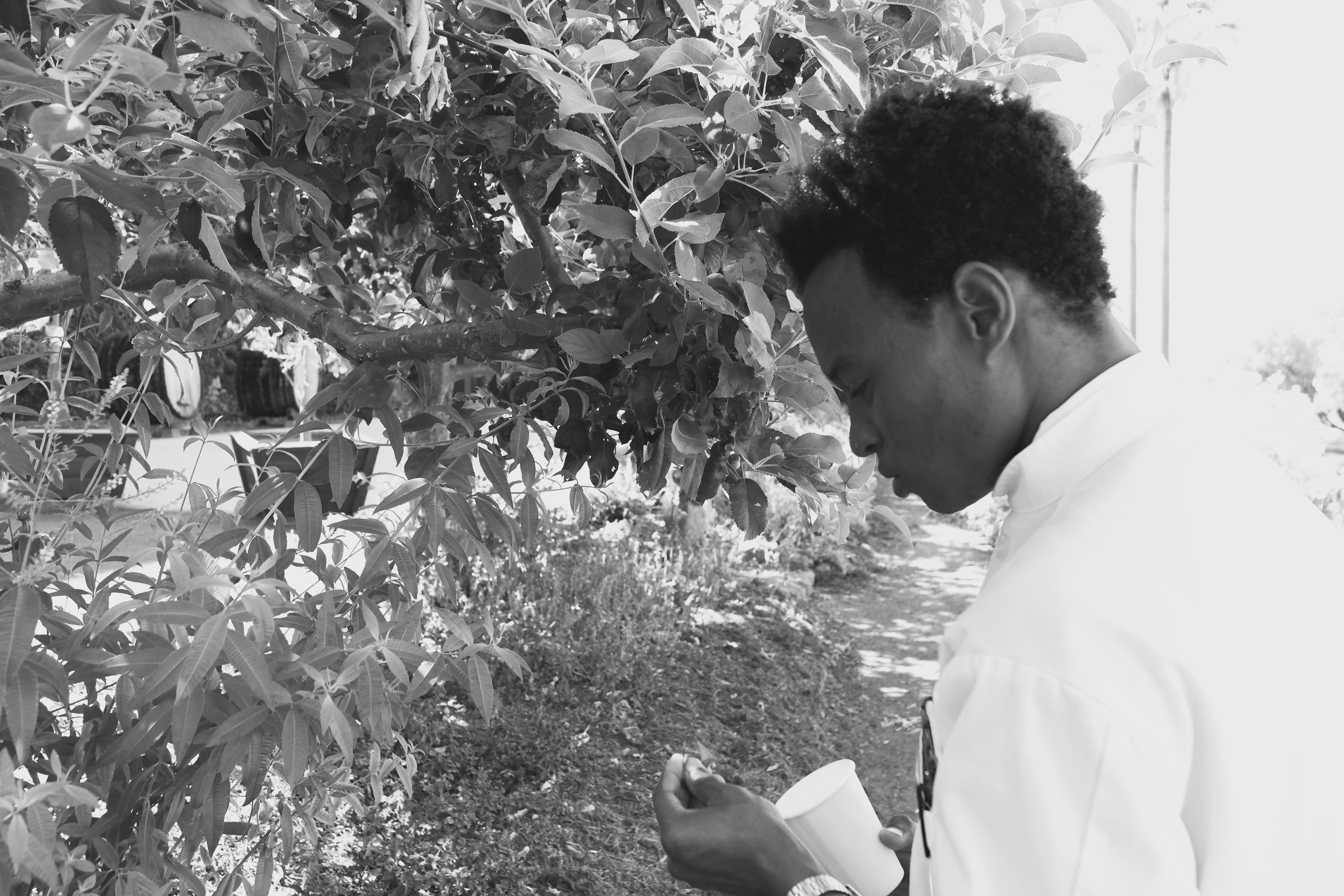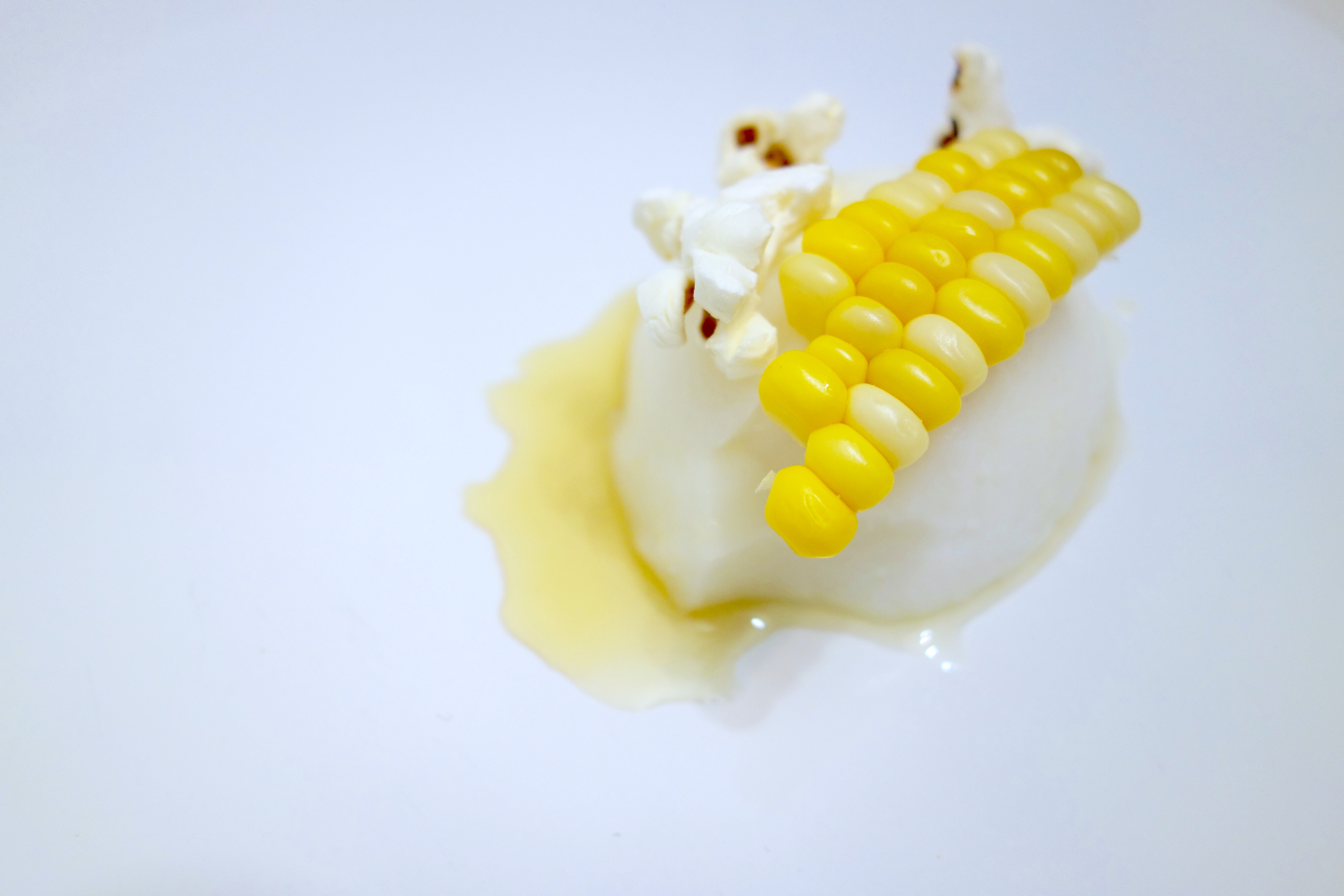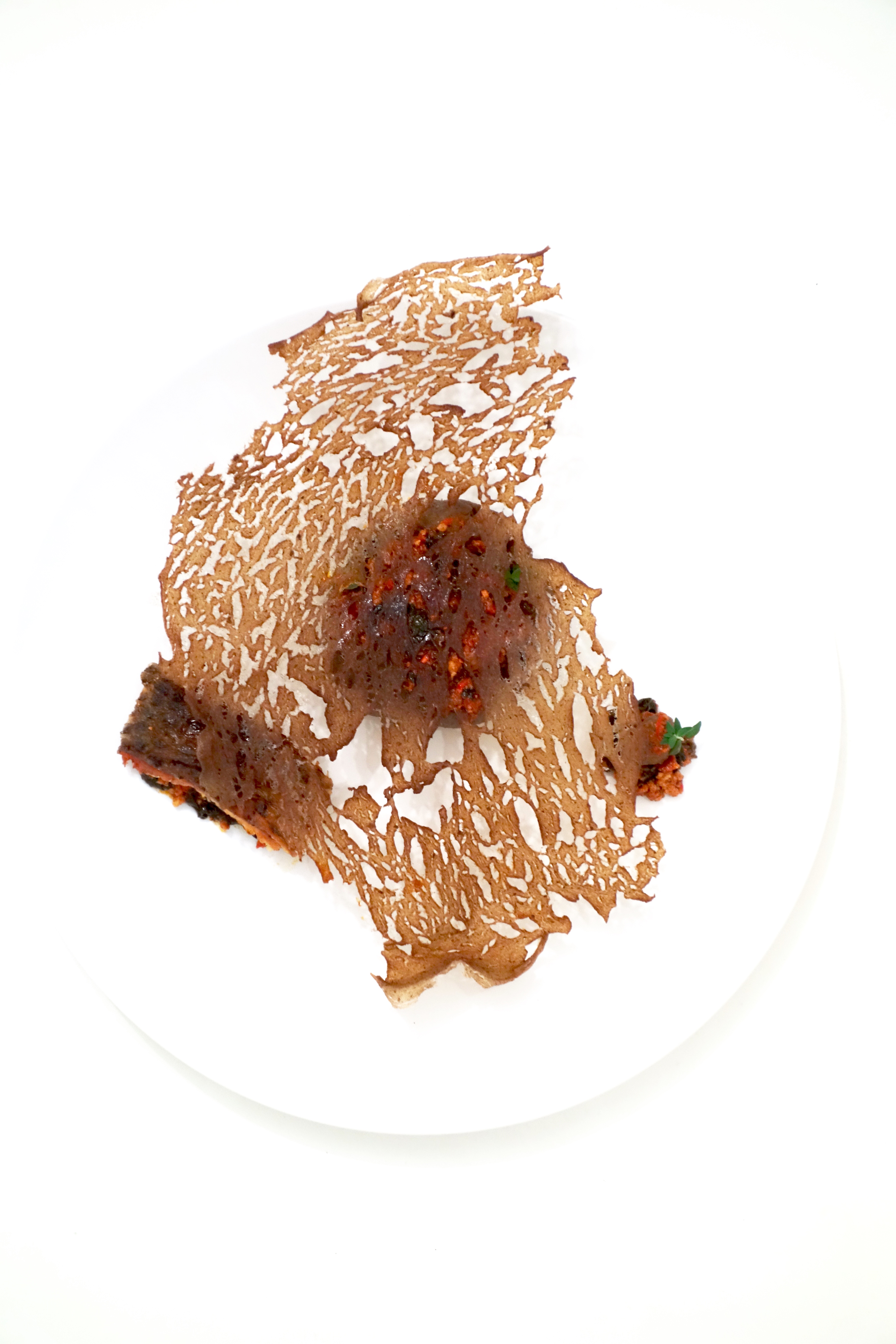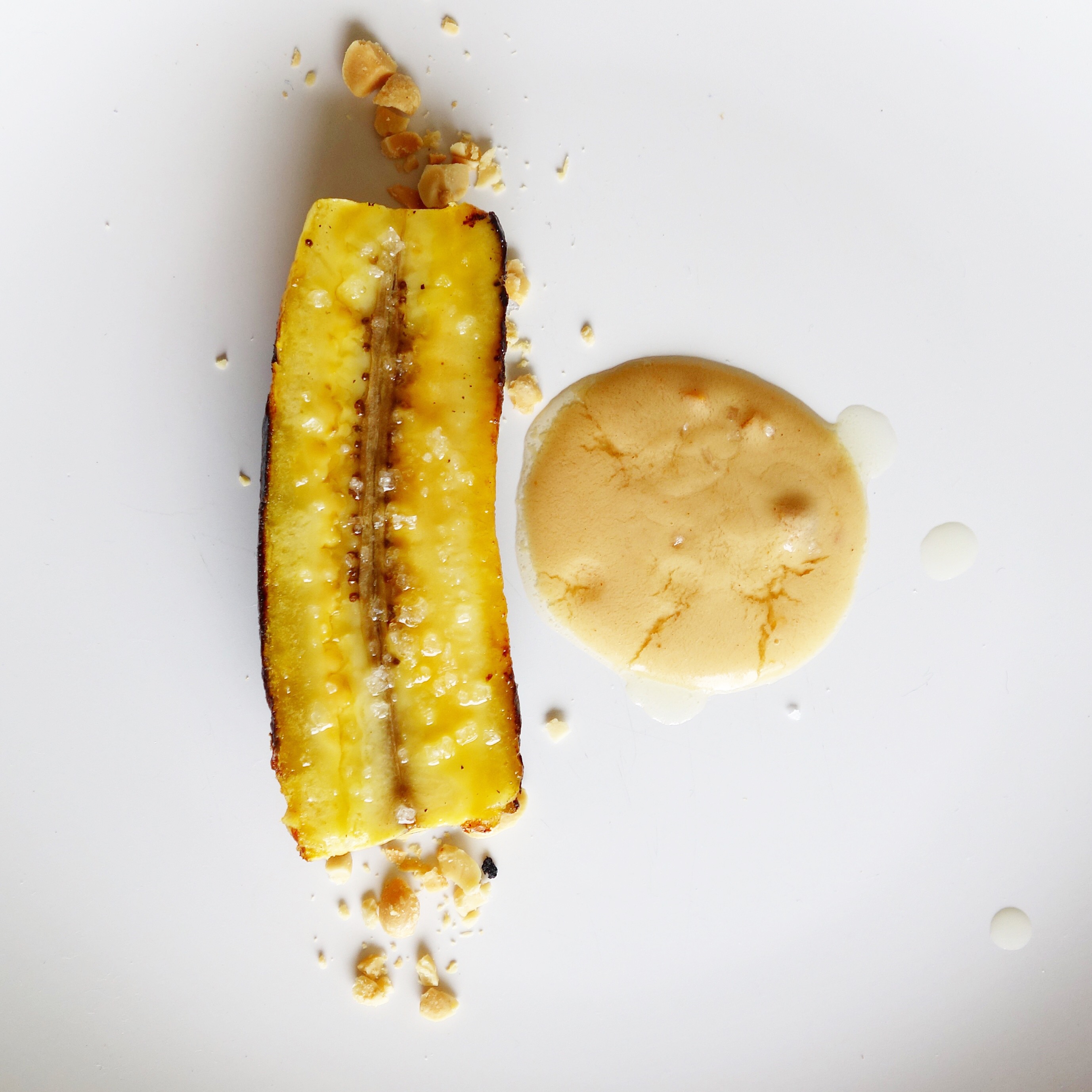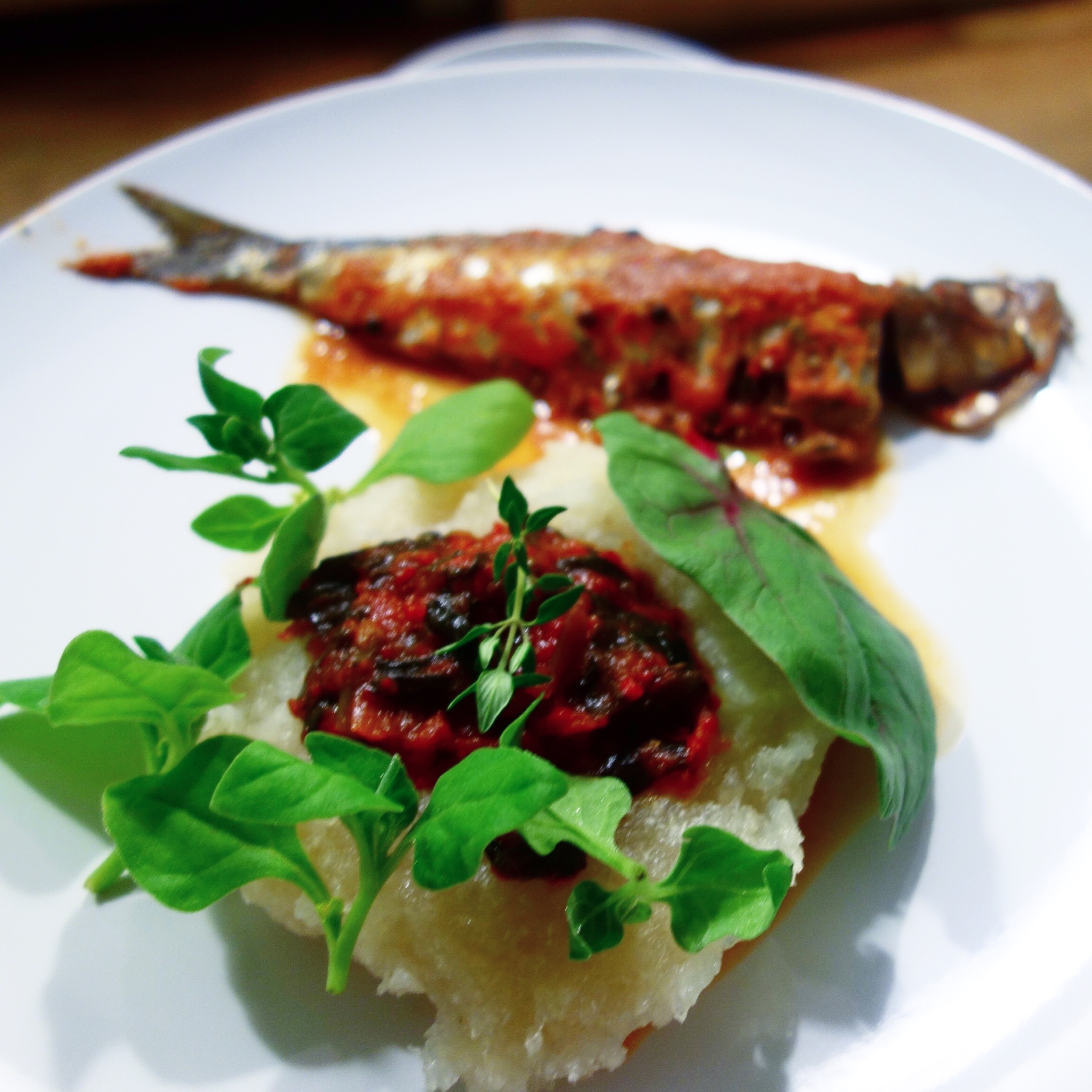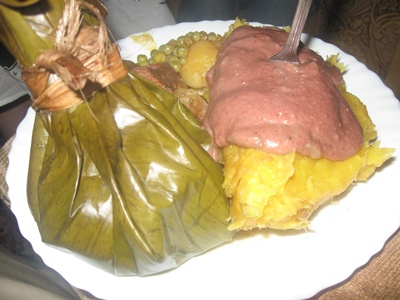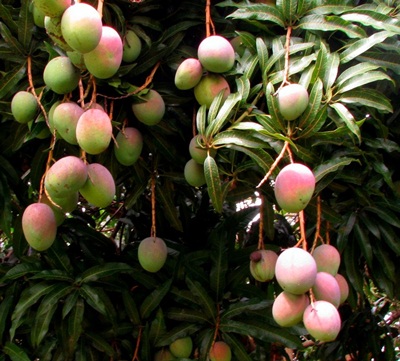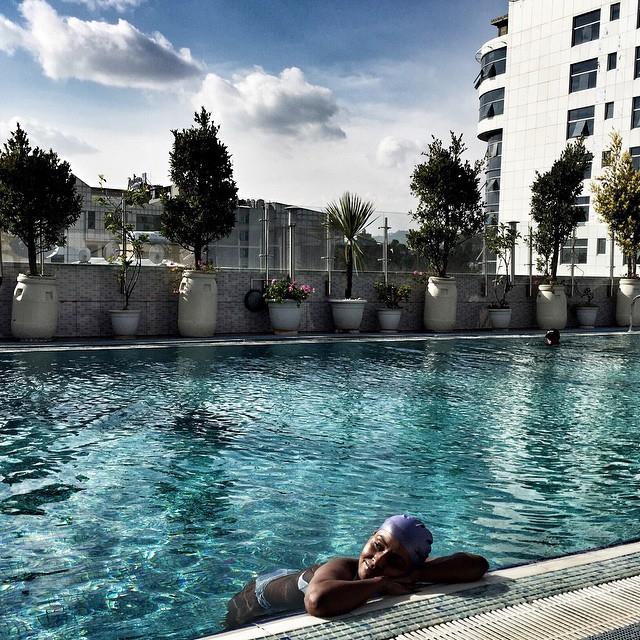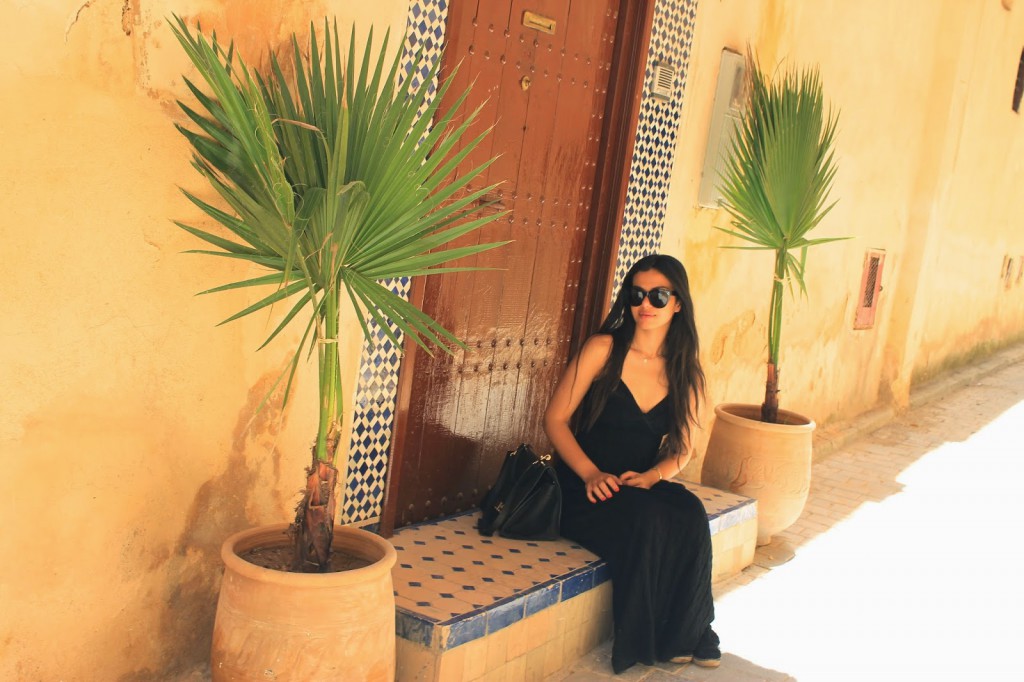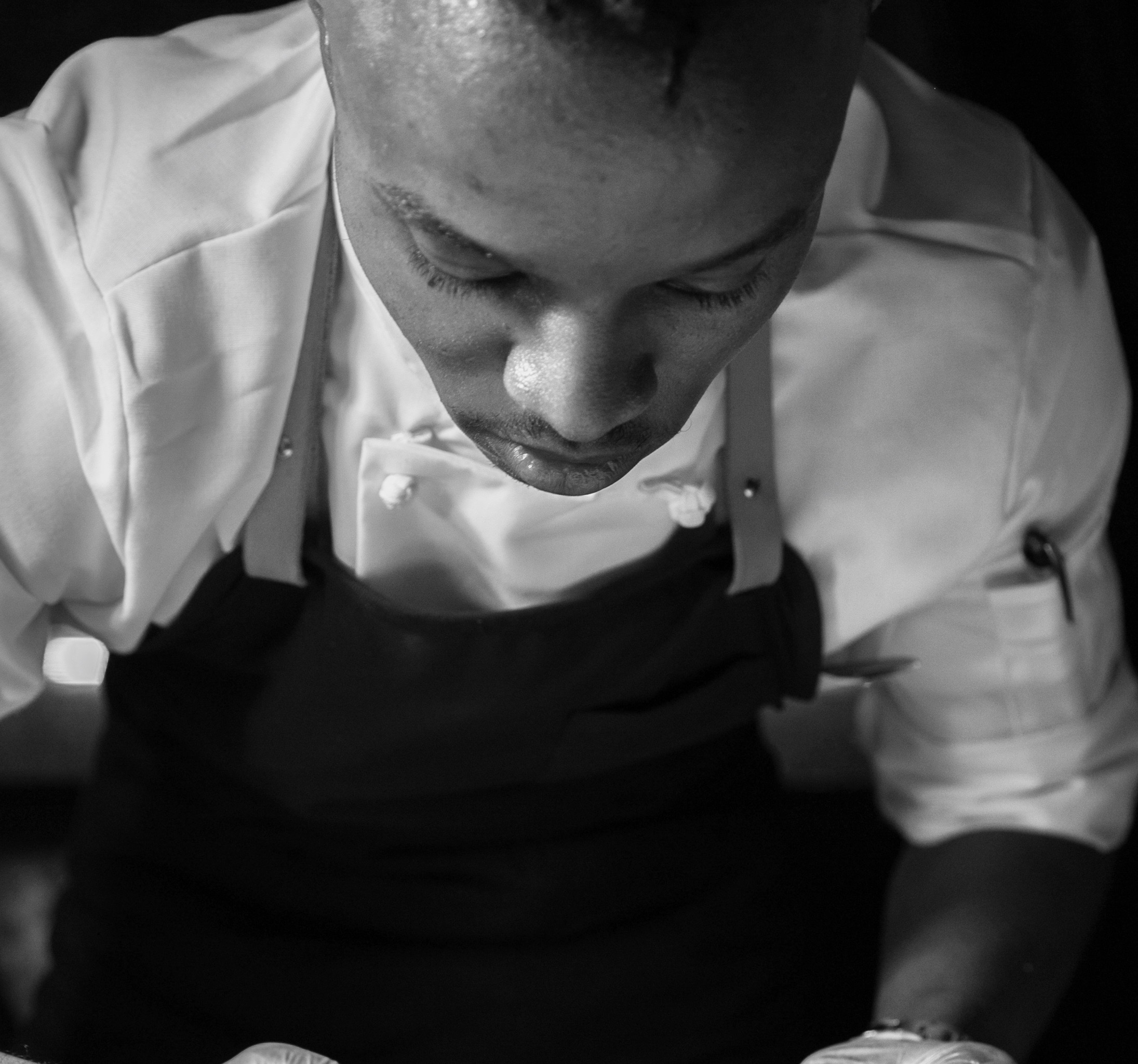
Meet Michael Elegbede, a young rising chef making his mark in the world of the culinary arts. His innovative approach to Nigerian cuisine redefines what we label as “African food.”
We got to discover the man behind the dishes:
Tell us a bit about yourself
I was born and raised in Nigeria with a passion and desire for everything food. Outside of food, I like spending time with my family and friends, exploring music and art, reconnecting with nature and fitness.
How did you get involved in the world of culinary arts?
I’m grateful to have grown up in a family where food traditions were engrained in the very fibres of our household. Both my mother and grandmother had their own restaurants and taught young women in the neighborhood how to cook. When I think back to my earliest memories, it usually involved me doing some task in the kitchen such as picking beans, peeling yams, and even plucking the feathers from a recently killed fowl.
My parents moved to Chicago when I was 5, causing me to spend 8 years of my youth with my grandmother and unconsciously falling in love with cooking. When I arrived in the U.S. in 2003, my mother had opened another Nigerian restaurant. This gave me the chance to continue learning and refining my skills of cooking traditional Nigerian Food. I tried college with aspirations of becoming a doctor like my father wanted, but it was not for me. I enrolled in The Culinary Institute of America Greystone, after graduating; I staged in restaurants across America and worked at Eleven Madison Park and The Nomad Restaurant.
Culinary school days A photo posted by Michael Adèolá Elégbèdé (@michael.elegbede) on Aug 13, 2015 at 6:11am PDT
Who or what has been your biggest influence?
Personally, my mother has been the greatest influence in my life. Her sacrifices have allowed me to pursue my dreams. Professionally, I’m influenced from afar by Chefs such as Alex Atala, Massimo Bottura, Rene Redzepi… who look to the ingredients, culture, traditions, and cuisine of their people to create a new language that expresses the food and tells a story of their land and people.
What is your dream for culinary art in Africa?
I’ve often found it absurd when people compartmentalize African food into this little box and label it African Cuisine. In reality, Nigerian food is as different from Ethiopian food as French food is from German food; but you rarely hear one make statements generalizing European cuisines. Africa is a large continent with immense and extremely diverse cultures with unique culinary traditions. I dream of Africa’s culinary art future to be one that brings rise to a knowledge driven awareness and appreciation for cuisines around the continent. I dream of a time when we can have educated conversations about the cuisines of specific regions and countries in Africa.
What are some of the challenges you feel has held back the advancement of culinary art in Africa?
When you say culinary arts, it immediately insinuates a level of refinement and creativity that goes beyond atypical cooking traditions. In my experience, cuisines in Africa are typically deemed as undeserving of refinement. This ideology is however most prominent amongst us Africans. For us to see more advancements, we have to first believe our food is worthy and can be valued like food from other more respected cuisines around the world. Apart from having more knowledgeable African chefs, it is also important we have diverse educated fields of study that focuses on African cuisines such as food historians, food scientists, food archeologists, etc.
What are the challenges you have faced so far in your journey as a chef?
Discovering the type of chef I want to become, as well as the voice I want to have in the culinary world posed a few challenges. But coming to the realization that I have an exciting and crucial opportunity to use my passion to bring awareness to the culture and traditions of my people is helping shape the direction of my path.
What is one tool or equipment you must have in your kitchen and why?
My chef knife. Apart from my love for knives, I believe it’s the most important tool in the kitchen due to its versatility.
What is the one thing that you must have in a dish besides salt or sugar?
Onions. I find it lends itself to several flavor profiles and textural exploitations. I’ve always found it fascinating what one can achieve with just onions and some salt.
What is the one thing you wish people knew about you?
I really like having long philosophical conversations.
What can we expect from you in the next few years?
Opening a restaurant.
What has been the challenge in introducing the art of African food and cooking to your peers or at events?
It’s been more of an educational experience rather than a challenge. Most of my peers and event guests are pretty open minded, so I usually find myself dissolving misconceptions they initially had about Nigerian food, and educating them on the new flavors and ingredients I’m introducing.
What is the one thing you would want to see change in Africa?
I believe we need to be more tolerant and sympathetic to one another. With tolerance, we stop wars over religious believes and eradicate the oppression of our neighbors because of their lifestyle choices.
What keeps you grounded and centered?
Elders in my family often say “rùntí omó ení tì o jé” meaning, “Remember the child of whom you are”. Knowing where I came from keeps me grounded and centered.
African food tends to be starchy or has the tendency of packing on pounds. What do you say to that? And how do you maintain such great shape when surrounded by all this great food? No matter where you are in the world, you always have a choice of the type of diet you consume, supposing you have the means. It is true, many of the more familiar dishes from Africa tends to be starchier, however, this does not define its cuisines. Growing up in a Yoruba household, we mostly ate vegetables and legume based dishes. Occasionally, the large mortar and pestle comes out of hiding and we indulge in the bountiful meal of pounded yam which is normally accompanied by a vegetable stew like, Efó (spinach stew). Fitness has always been a big part of my life, it helps me attain a level of balance. Mind, body, and soul.
Light morning jog A photo posted by Michael Adèolá Elégbèdé (@michael.elegbede) on May 31, 2015 at 10:01am PDT
On a personal level, what are you listening to at the moment?
Asa and Fela
What is your favorite African dish?
Pounded Yam with gbegiri and Ila
Seriously though! Left: #sweetpotato. Right: #Yam!! A photo posted by Michael Adèolá Elégbèdé (@michael.elegbede) on Feb 21, 2015 at 3:09pm PST
For those interested, what does it take to have you host a private dinner and or luncheon?
Contact me, I’m always willing to collaborate. 
Finally, what is the one thing you wished people would appreciate more about food?
I would like for people to be more aware and appreciative of the hard work that goes into the processing of the food in front of them. From the labor and skills of the farmers who grow and collect the food, to the chefs who prepares them into dishes.
Giant #bellpeppers A photo posted by Michael Adèolá Elégbèdé (@michael.elegbede) on Sep 18, 2015 at 2:40pm PDT
For more on michael: https://instagram.com/michael.elegbede/



